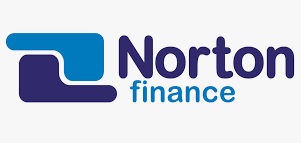When should I apply for loans with a guarantor?
Applying for a loan with a guarantor in the UK can be a good option in specific situations.
If you have a poor credit score or a limited credit history, a guarantor can help you secure a loan that you might not otherwise be eligible for. The guarantor’s good credit history provides assurance to the lender.
If your income is low or your employment is not stable (e.g., you're a freelancer or on a temporary contract), a guarantor can strengthen your loan application by providing additional security to the lender. If you need a larger loan than you can qualify for on your own, having a guarantor might help you access a bigger amount.
In some cases, having a guarantor can help you secure a lower interest rate compared to taking out an unsecured personal loan on your own, especially if your credit score is less than ideal. If you’re looking to rebuild your credit score, repaying a loan with a guarantor on time can improve your credit rating over time.
As an alternative, you can also take out a personal loan. Your possible expenses:
Personal loan calculations for 1 year (example)
| Amount, $ | Rate, % | Accrued %, $ |
| 5,000 | 8.90% | 241 |
| 5,000 | 9.90% | 268 |
| 5,000 | 10.90% | 295 |
| 10,000 | 11.00% | 596 |
| 10,000 | 12.00% | 650 |
| 10,000 | 13.00% | 704 |
| 20,000 | 13.10% | 1,419 |
| 20,000 | 14.10% | 1,528 |
| 20,000 | 15.10% | 1,636 |
| 25,000 | 15.50% | 2,099 |
| 25,000 | 16.20% | 2,194 |
| 25,000 | 17.20% | 2,329 |
Who should be your guarantor?
Your guarantor should ideally be someone with a strong credit history and financial stability, such as a family member or close friend. They must be aware of the responsibilities, as they will be liable to repay the loan if you’re unable to make the payments.
What are the pecularities of loans with house as security?
Loans secured by a house, often referred to as secured loans or homeowner loans, come with specific characteristics that differentiate them from other types of loans in the UK.
Here are the key peculiarities of loans that use a house as security:
- Collateral Requirement. The primary feature of a secured loan is that it requires your home as collateral. This means that the lender has the right to take possession of your property if you fail to repay the loan.
Impact: Because the loan is secured against your home, lenders are more willing to offer larger loan amounts and better interest rates compared to unsecured loans. - Loan Amounts. Secured loans typically allow you to borrow larger amounts of money compared to unsecured loans. Depending on the equity in your home, you can often borrow anywhere from £10,000 to over £1 million.
- Interest Rates. Interest rates on secured loans are generally lower than those on unsecured loans due to the reduced risk for lenders.
- Repayment Terms. Secured loans often come with longer repayment terms than unsecured loans. Repayment periods can range from 5 to 25 years, allowing for lower monthly payments.
- Risk of Repossession. The most significant risk with a secured loan is the potential loss of your home if you default on the loan. This makes it crucial to ensure you can meet the repayment obligations, especially if your financial situation changes.
- Credit Impact. Secured loans can be more accessible for those with poor credit, as the risk to the lender is mitigated by the security of your home. Successfully managing a secured loan can help improve your credit score over time.
- Use of Funds. Secured loans are versatile and can be used for a variety of purposes, such as home improvements, debt consolidation, or major purchases.
- Loan Approval Process. The application process for secured loans can be more involved than for unsecured loans, as it typically includes a property valuation and more detailed credit checks.
- Early Repayment and Exit Fees. Many secured loans come with early repayment fees, also known as exit fees, if you pay off the loan before the end of the term. These fees can be a percentage of the remaining balance or a fixed amount.
- Second Charge Mortgages. A secured loan can also be taken out as a second charge mortgage if you already have a mortgage on your home. This means the loan is secured against the same property as your existing mortgage.
- Impact on Future Borrowing. Taking out a secured loan can affect your ability to borrow more in the future, as it reduces the equity in your home.
- Affordability Checks. Lenders will conduct thorough affordability checks to ensure you can comfortably meet the repayment obligations.
Factors Considered: Your income, outgoings, existing debts, and overall financial situation will be assessed. - Flexible and Tailored Options. Some lenders offer flexible repayment options, such as payment holidays or variable interest rates that can be tailored to your financial situation.
Loans for a car title in the UK
Credits that use a car title as collateral, often referred to as car title loans or logbook loans in the UK, allow borrowers to use their vehicle as security for a loan. These loans come with specific characteristics and risks that borrowers should carefully consider.
A car title loan, known in the UK as a logbook loan, is a type of secured loan where the borrower uses their vehicle as collateral. The lender temporarily holds the vehicle's V5C logbook (proof of ownership) until the loan is repaid.
The amount you can borrow with a logbook loan typically depends on the value of your vehicle. Loans usually range from £500 to £50,000, depending on the car's value and the lender's policies.
Interest rates for logbook loans are generally higher than those for other secured loans due to the perceived risk.The Annual Percentage Rate (APR) can be very high, often ranging from 100% to over 400%, making these loans expensive.
Repayment terms for logbook loans can vary, typically ranging from 12 to 36 months. Some lenders may offer flexibility in repayment schedules, but this can vary widely. Paying off the loan early can sometimes result in additional fees, though it may save money on interest.
If the borrower fails to repay the loan as agreed, the lender has the legal right to repossess and sell the vehicle to recover the loan amount.
Repossession: Repossession can occur without a court order if the loan is not repaid, which is a significant risk for borrowers.
You must be the legal owner of the vehicle, with the logbook in your name. The car must be in good condition and free of any other finance (or close to being paid off). Some lenders may impose restrictions on the age or mileage of the vehicle.
The application process usually involves filling out a form online or in person, followed by an inspection and valuation of your vehicle. You'll need to provide your V5C logbook, proof of identity, proof of income, and possibly insurance details.
See the similar FAQ about UK banks:
- Bank of Ireland lending criteria
- HSBC bank transfer time within the UK
- HSBC graduate loans
- HSBC in America
- HSBC loan early repayment: how to manage
Details of companies offering the financial services:
ABC Finance Limited
Head office’s address: Point North Park Plaza, Cannock WS12 2DF
Contact center: +44 1922-620-008
Web-site: https://abcfinance.co.uk/
Boutell
Head office’s address: 22 The Bramhall Centre, Bramhall, Stockport, United Kingdom, SK7 1AW
Web-site: https://www.boutell.co.uk/
Cash Compare
Head office’s address: London
Web-site: https://www.cashcompare.co.uk/
Cash Lady
Head office’s address: London
Contact center: 0203 966 9814
Web-site: https://www.cashlady.com/
Evolution Money
Head office’s address: 9 Portland Street, Manchester
Contact center: 0161-814-9158
Web-site: https://enquiry.clarity-uk.com/
Fast Loan UK
Head office’s address: Shire Park, 2 Falcon Gate, Welwyn Garden City AL7 1TW
Web-site: https://www.fastloanuk.co.uk/
HSBC Bank
Head office’s address: Unit 8, Canada Square, Retail, London E14 5AH
Phone: +44 345 740 4404
Web-site: https://www.hsbc.co.uk/
Swift code: HBUKGB4B
Reference number: 114216
Stock code: HSBA
ABN: 00014259
BSB: HBUK
Norton Finance
Head office’s address: Norton House, Mansfield Rd, Rotherham S60 2DR
Contact center: +44 800-694-5566
Web-site: https://www.nortonfinance.co.uk/
Ocean Finance
Head office’s address: Marlowe House, Watling St, Hockliffe, Leighton Buzzard LU7 9LS
Phone: +44 333-123-0022
Web-site: https://www.oceanfinance.co.uk/
Payday UK
Head office’s address: Payday Loans Limited, The Charter Building, Charter Place
Contact center: 0800-302-9409
Web-site: https://www.paydayuk.co.uk/
Pegasus Finance
Head office’s address: Technology House, Station Rd, Alton GU34 2PZ
Contact center: 800-066-2882
Web-site: https://www.pegasuspersonalfinance.co.uk/
Simple Personal Loans
Head office’s address: London
Web-site: https://www.simplepersonalloans.co.uk/











